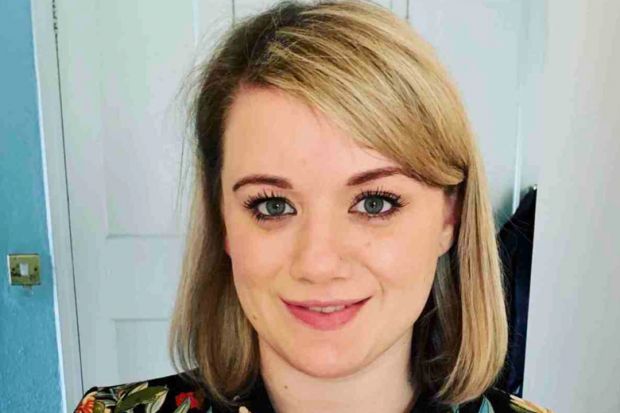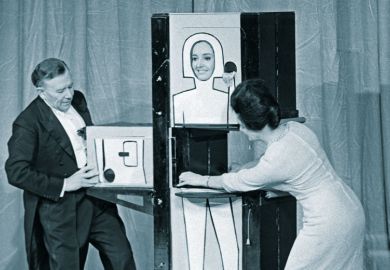The new leader of the UK’s main higher education union has hailed her election as a “landmark moment” while promising to take a hard line with vice-chancellors over pay and pensions.
Jo Grady, senior lecturer in employment relations at the University of Sheffield, told Times Higher Education that her election as general secretary of the University and College Union would “usher in a new era of member engagement and participation”.
She will succeed Sally Hunt, who resigned in February due to ill health, after resoundingly beating Matt Waddup, the UCU’s national head of policy and campaigns, in the second round of the ballot.
“I think anybody who works in education, whether they are an academic or not, should really feel encouraged that someone who knows what it is like to work on the front line will be representing them in all of the negotiations, discussions, and also all the public campaigns that we have,” Dr Grady told THE.
“Sally did an amazing job. I think the manifesto outlines that what I am more interested in is finding ways to include and centre voices that have perhaps been marginalised or not encouraged to get involved in the union and really making the best use of the expertise of our members and the skills of our staff.”
Top of Dr Grady’s to-do list will be resolving the dispute over the future of pensions offered by the Universities Superannuation Scheme, which triggered 14 days of strike action last year. The latest option proposed by the USS still falls short of the union’s policy of “no detriment” – under which employers, not staff are expected to foot the bill for future increases in contributions.
The swirl of uncertainty hanging over the scheme heightened last week when The Pensions Regulator warned that it had “grave concerns” over the USS’ proposal, and a whistleblower – Jane Hutton, a member of the USS trustee board and professor of statistics at the University of Warwick – claimed that she had been obstructed in her efforts to establish whether the USS’ reported deficit was exaggerated.
Dr Grady, who has previously called for “a radical overhaul of the USS’ valuation methods, governance and, if necessary, personnel”, told THE that the fund managers would have to come up with an acceptable solution.
“None of [the options] is acceptable and, as far as The Pensions Regulator is concerned, [the latest option] is potentially unlawful. The position of the UCU is ‘no detriment’.”
Dr Grady was equally uncompromising on pay, saying that the final offer of a 1.8 per cent minimum pay rise for 2019-20 was “nowhere near enough”. Whether union members are prepared to strike to force a better offer remains to be seen – while 70 per cent of voting members backed a walkout over last year’s offer, the turnout fell short of the 50 per cent threshold for industrial action – Dr Grady said that she was determined to fight for an improvement.
“I think anybody who works in this sector knows that pay has declined significantly in the past 10 years and at the same time that pay for vice-chancellors has rapidly increased, disproportionately to staff [pay], so I don’t think it’s a controversial statement to say the increase offered is nowhere near enough,” Dr Grady said.
“Also, we need to do a lot more for precarious and casualised staff, a lot more to close gender and ethnicity pay gaps, [and] a lot more to ensure disabled staff aren’t performance-managed out of our institutions.”
Michael Carley, senior lecturer in the department of mechanical engineering at the University of Bath, questioned whether there was “appetite” among union members for further industrial action.
He highlighted that, coming from outside the UCU’s traditional factions, Dr Grady “doesn’t have a national executive committee that comes from her camp at all. She has to convince the NEC, and I am not sure she can do that,” Dr Carley said.
Dr Grady said that strike action was always “more than just the call of the general secretary”.
But it is “clear that as a union, we have to always be willing to ballot. Sometimes balloting is sufficient, sometimes taking strike action is needed”, she said.
And, despite her stance on key issues, Dr Grady said that she was prepared to work constructively with vice-chancellors.
“If you speak to people in senior management who I work with at Sheffield I am really open to collegial discussions,” she said.
Nick Hardy, Birmingham fellow in the University of Birmingham’s English literature department, said that he believed Dr Grady would be “much more proactive” on pushing members’ rights in the USS dispute and would do a “really good job of mobilising members if and when they need to be mobilised”.
University staff were “very pleased to see a member who has worked on the front line of the sector leading the union”, he added.

